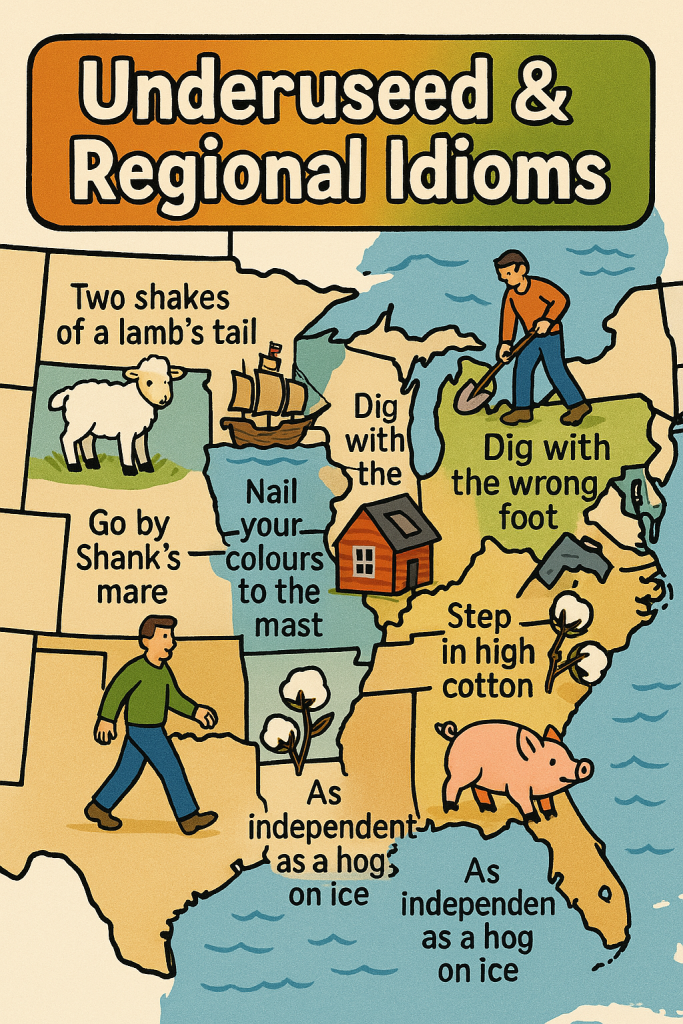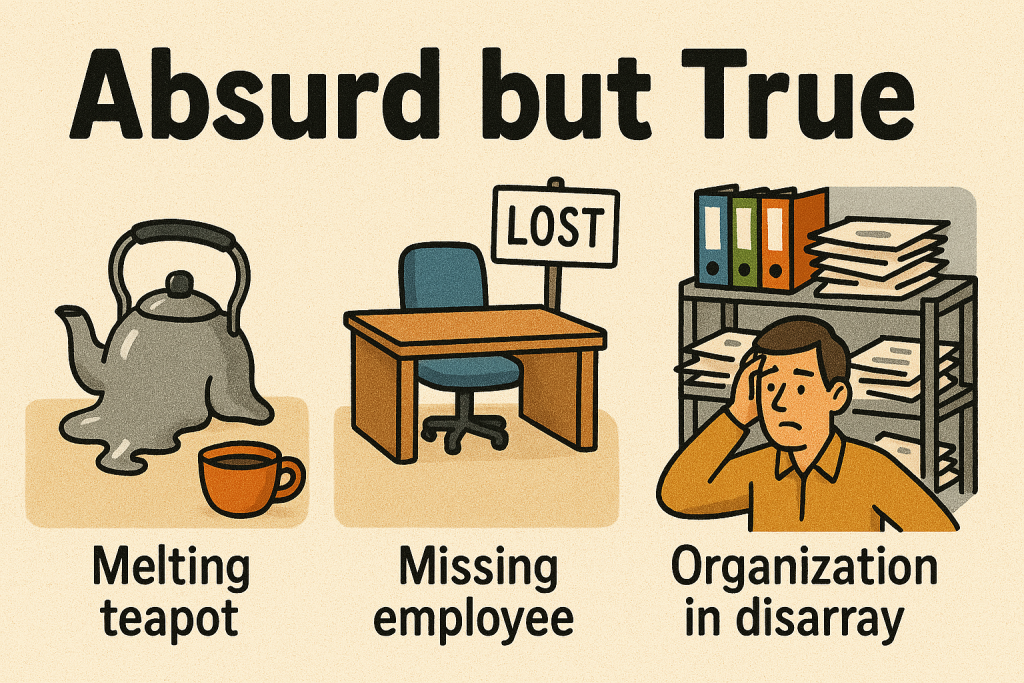Discover underused regional idioms, their meanings, origins, and how to use them daily!
Introduction: Beyond the Usual Suspects
Let’s face it: if you’ve been learning English for more than five minutes, you already know idioms like “piece of cake” or “kick the bucket.” Congratulations, you’ve unlocked level one. Now let’s talk about the real treasure—underused idioms—the forgotten gems of English, often specific to a region, era, or the kind of uncle who says things that make people Google silently at dinner.
In this article, we’re diving into idioms you won’t hear in textbooks or corporate Zoom calls. You’ll explore quirky, hyperlocal phrases like “to have a butcher’s” or “fit as a Mallee bull,” learn their meanings, trace their (sometimes absurd) origins, and—shockingly—discover how to use them in daily conversation without sounding like you’re trying too hard.

Also, if you’re the kind of person who still mixes up in, on, and at, maybe pause and check out this friendly little breakdown on prepositions. Just saying.
Why Regional Idioms Matter (And Why You Should Care)
Regional idioms aren’t just fun to throw around when you’re trying to impress native speakers at parties (although, let’s be honest, that is part of the appeal). These expressions carry cultural baggage—in the best way. They’re like linguistic fossils showing you what people valued, joked about, or yelled at goats in different corners of the English-speaking world.
And trust me, they go deeper than what your textbook taught you. If you want to level up from tourist to “local who maybe got lost,” regional idioms are your ticket.
Want some deeper digging? The Oxford English Dictionary occasionally highlights the evolution of idiomatic expressions by region—yes, it’s real, and yes, it’s much smarter than your group chat.
Meanings, Origins, and Daily Use of Underused & Regional Idioms
Here’s the real meat of the sandwich. Below are 6 glorious, less-common English idioms, complete with background checks and real-world usage.
1. “To have a butcher’s” 🇬🇧
Meaning: To have a look.
Origin: Cockney rhyming slang. “Butcher’s hook” rhymes with “look,” so naturally the word “hook” got dropped, because logic is for the weak.
Example:
“Hang on, I’ll have a butcher’s at the engine—it’s probably just the battery.”
2. “Fit as a Mallee bull” 🇦🇺
Meaning: Extremely fit and strong.
Origin: Australian idiom referring to the wild, muscular bulls from the Mallee region. Think gym rat but rural.
Example:
“Mate, he’s 75 and still runs marathons. Fit as a Mallee bull!”

3. “All hat and no cattle” 🇺🇸 (Southern US)
Meaning: Someone who talks big but doesn’t deliver.
Origin: A jab at people in cowboy hats who look the part but can’t ride a horse to save their life.
Example:
“He said he’d close the deal by Friday, but he’s all hat and no cattle.”
4. “Couldn’t organise a piss-up in a brewery” 🇬🇧
Meaning: Someone extremely disorganised.
Origin: British, obviously. A “piss-up” is a drinking session. If you can’t manage one in a brewery, then you might as well go home.
Example:
“Don’t let him plan the event—he couldn’t organise a piss-up in a brewery.”
5. “As useful as a chocolate teapot” 🇬🇧
Meaning: Completely useless.
Origin: Chocolate. Teapot. You do the math.
Example:
“This Wi-Fi is as useful as a chocolate teapot.”
This is the part where you think your idioms are solid, but if you’re still messing up third-person verbs, maybe sneak over to this explanation on verbs ending in -s. I won’t tell anyone.
6. “Gone walkabout” 🇦🇺
Meaning: Disappeared or wandered off unexpectedly.
Origin: Derived from an Aboriginal Australian practice, though it’s used casually now to describe someone who has, let’s say, vanished mid-task.
Example:
“Where’s Dave?” – “Dunno, gone walkabout again.”
Want to confirm an idiom isn’t something your mate made up after three pints? Try Merriam–Webster’s Idioms Dictionary for clarity. Or to make yourself feel mildly better about your vocabulary.
How to Use Idioms Without Sounding Like a Weirdo
Look, idioms are like seasoning—too much and you sound like a thesaurus exploded. Use them sparingly and in the right context. Here’s your bare-minimum idiot-proof guide:
- Start with listening. Notice when natives use them. Timing is everything.
- Try one at a time. Don’t drop six in one sentence unless you’re aiming for chaos.
- Test the waters in conversation. With friends. Preferably forgiving ones.
- Don’t force it. If it doesn’t fit the context, leave it in the drawer with your unused gym clothes.

Also, try reading blog posts like this one from FixyGrammar on prepositions or give their summarizer tool a whirl if long texts make your brain sweat.
Conclusion: Idioms That Actually Add Flavor
Language learners often stick to textbook phrases, which is fine if you’re trying to impress a robot. But if you want your English to sound lived-in, underused idioms are your new best friends. They open a window into culture, character, and comedy—and who doesn’t want that?
So next time you’re tempted to say “It’s raining cats and dogs,” maybe try something a little less… predictable.
